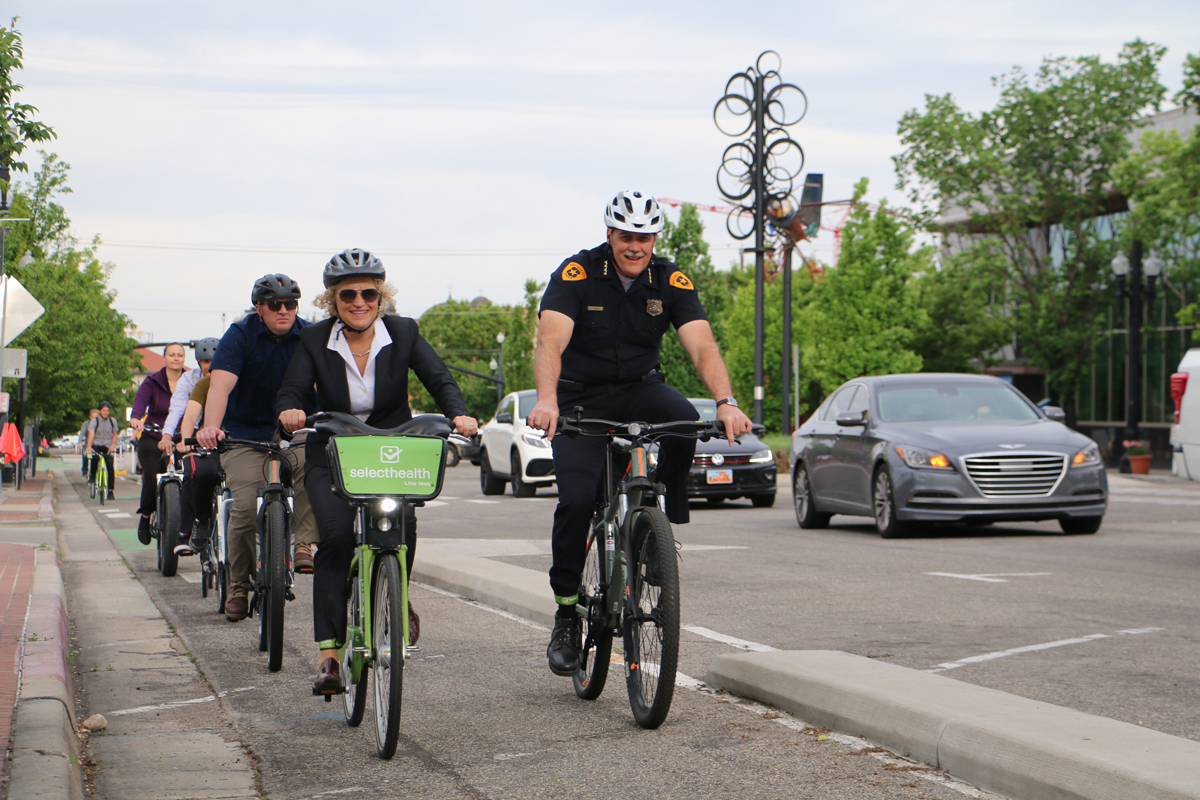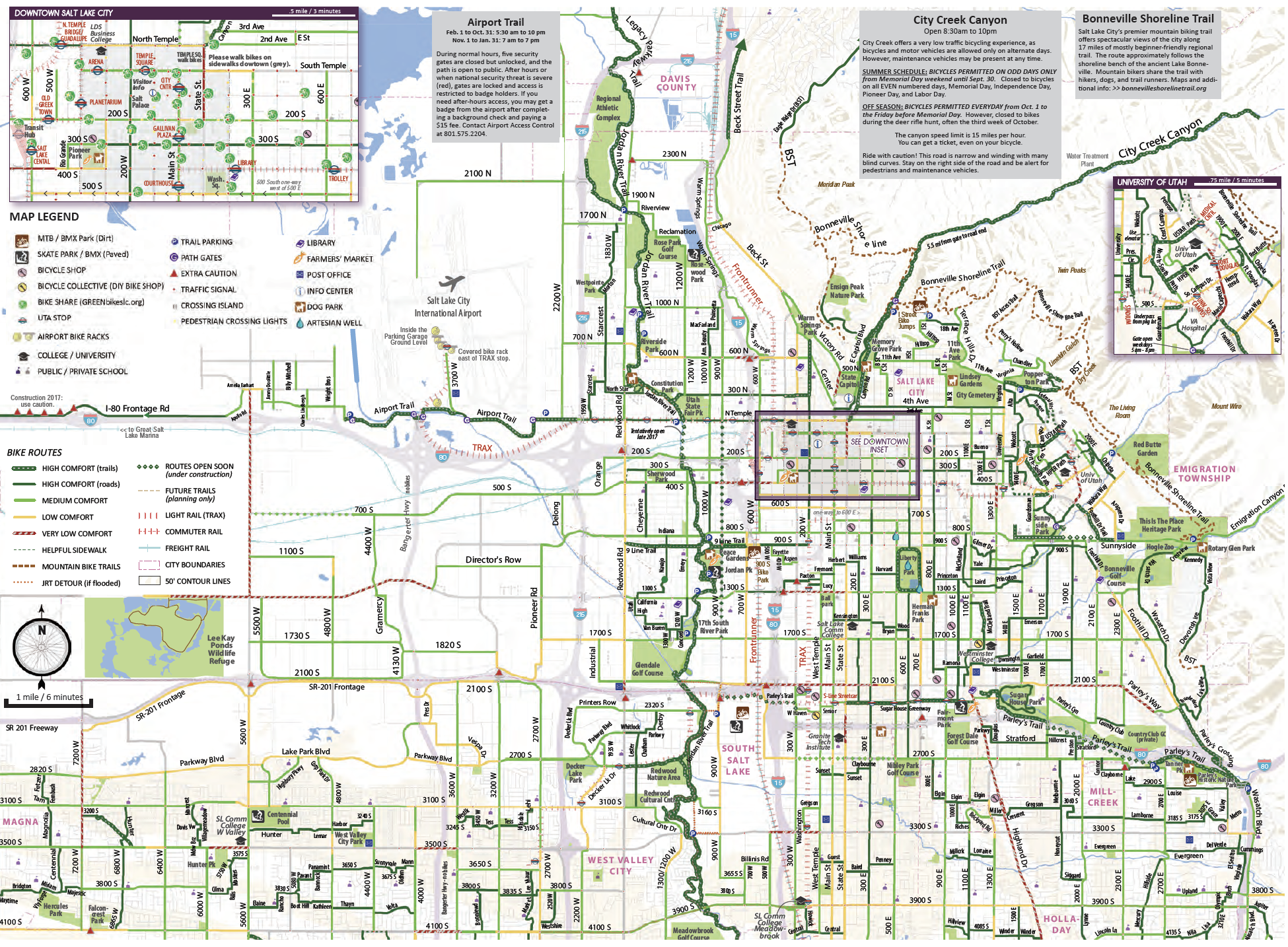By Russ Hymas and Ken Christensen – If you’ve ever been hit by a car while on your bike, you already know that one of the first things you do – after checking out the damage to your beloved bike, of course – is call the police. At the scene of the accident, a police officer’s duty is to make sure everyone is safe, take statements, and collect evidence that can be used in determining fault.

Police officers put their lives on the line every day to keep us, our families and our communities safe. They see things and handle situations that would send most of us running in the opposite direction. But since officers are required to handle so many different situations, they can sometimes be less familiar with certain types of situations, such as cycling accidents. When it comes to car accidents, the scene is a familiar one for police officers. But a cycling accident can be different. Often times, police officers aren’t nearly as well-versed in cycling laws and the privileges afforded us.
In addition to the frustration this can cause for an injured cyclist, it can also have a significant impact on your ability to receive compensation for your damaged bike and injuries. If an officer is lacking in knowledge of cycling laws or the propriety of the cyclist’s actions, the traffic accident report he or she generates may lack accuracy or clarity on what happened in the accident and who is at fault.
This does NOT mean that you shouldn’t call the police after an accident. An incomplete accident report is better than none at all – especially in circumstances where some damage to your bike is overlooked, or your injuries aren’t fully recognized until the adrenaline wears off. What it DOES mean is that, as cyclists, we need to be extra diligent in documenting the events surrounding an accident. Riding with a GoPro or taillight camera is an excellent way to ensure your riding behavior is documented. Bike computers, Strava or other training apps, and photographs of the damage to your bike, the car involved, and the scene of the accident, are also extremely helpful.
The police officer may determine liability and issue a citation to one or both of the parties involved. The officer can also decide not to give any citations at all. Such a decision can add the proverbial insult to injury for a battered cyclist that watches a careless driver get away without so much as a slap on the wrist. But the issuance of a citation isn’t necessary for a personal injury claim. In fact, the citation isn’t even admissible in court! The jury or judge will be asked to determine fault based on the all the evidence and isn’t allowed to be influenced by whether a party received a citation or not.
This should go without saying, but always treat the police officer with courtesy and respect. You may be more familiar with Utah bike laws than the responding officer, but you don’t have to prove this at the scene of the accident. So becoming confrontational at the scene will likely do more harm than good. In certain circumstances, the police officer may be asked to come to court later on and testify as a witness in your injury case. The officer’s perspective can be very helpful and you do not want the officer to harbor animosity toward you because of the way you acted at the accident scene.
Cyclists are passionate about protecting our right to be on the road, but that right is nothing more than a privilege that can be taken away from us. Our right to use the road is not protected in our state or federal constitutions. By refusing to act maturely and responsibly, we are damaging our privilege to ride and can undermine the hard-earned gains from organizations such as Cycling West, BikeUtah, and many others. Just remember your grandmother’s sage advice … You can catch more flies with honey than vinegar.
Ken Christensen and Russ Hymas are avid cyclists and Utah attorneys at UtahBicycleLawyers.com. Their legal practice is devoted to helping cyclists injured in collisions with motor vehicles. They are authors of the Utah Bicycle Accident Handbook and are nationally recognized legal experts on cycling laws and safety.











Having been pushed off the road by an officer making a right turn on red (my contention is she failed to stop prior to turning) I couldn’t get an officer to write a report even though the police vehicle made contact with the bike.
Frankly this was a case whereby the offending officer was protected by the ‘blue wall of silence’ The sad part is the next bicyclist may not be as fortunate to avoid injury.
Comments are closed.